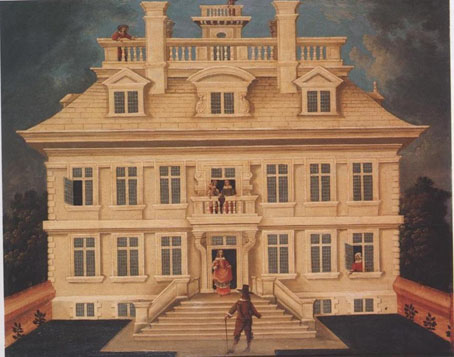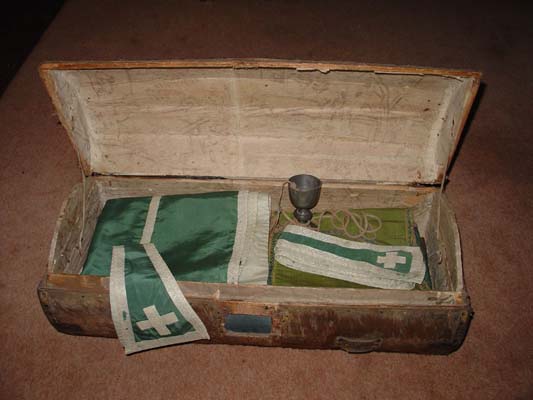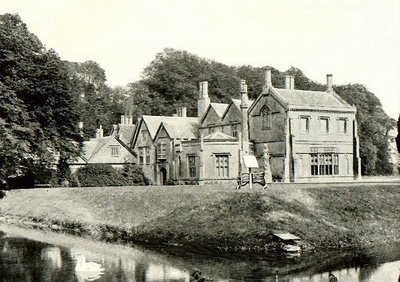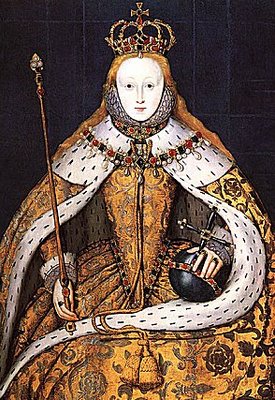Blessed ROGER CADWALLADOR, Priest, 1610
Biography
 As they had failed in their arguments, they turned to scoffing, and mocked him for having no tonsure,Hereford to Leominster, still wearing his shackles, though, owing to his extreme weakness, a boy was allowed to accompany him holding up their links by a string. After his condemnation to death, for some months before his martyrdom he was chained every night to his bed-post by an iron chain. One day the keeper led him to an obscure and loathsome place, and left him there chained to a post, unable to move more than two yards; at last the keeper's wife, moved with compassion, in her husband's absence let him loose. In his sickness in prison he was subject to ill-usage and slanders, yet nothing daunted his courage or cheerfulness, and to a friend he said, shaking his shackles as he lay prostrate, "Hear, O Lord ! these are my little bells."
As they had failed in their arguments, they turned to scoffing, and mocked him for having no tonsure,Hereford to Leominster, still wearing his shackles, though, owing to his extreme weakness, a boy was allowed to accompany him holding up their links by a string. After his condemnation to death, for some months before his martyrdom he was chained every night to his bed-post by an iron chain. One day the keeper led him to an obscure and loathsome place, and left him there chained to a post, unable to move more than two yards; at last the keeper's wife, moved with compassion, in her husband's absence let him loose. In his sickness in prison he was subject to ill-usage and slanders, yet nothing daunted his courage or cheerfulness, and to a friend he said, shaking his shackles as he lay prostrate, "Hear, O Lord ! these are my little bells."" He clothed him with a robe of glory, and encompassed him with many little bells of gold, that a noise might be heard in the temple for a memorial to the children of his people."— ECCLUS. xlv. 9, 10, 11.
























